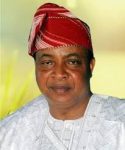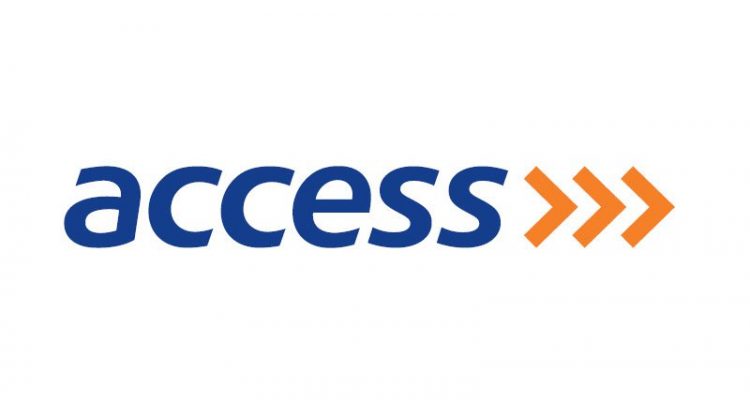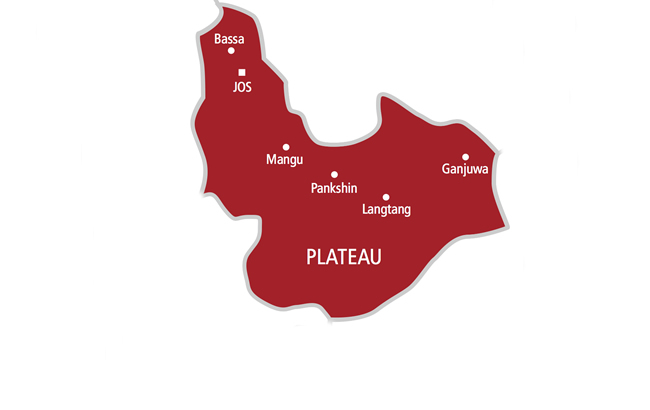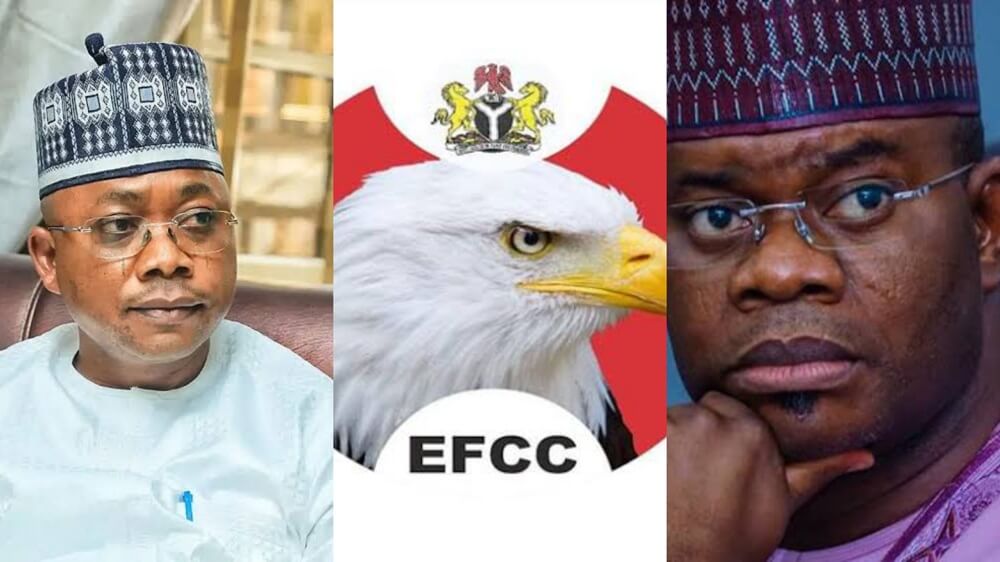National Assembly hits at PMB after withholding assent
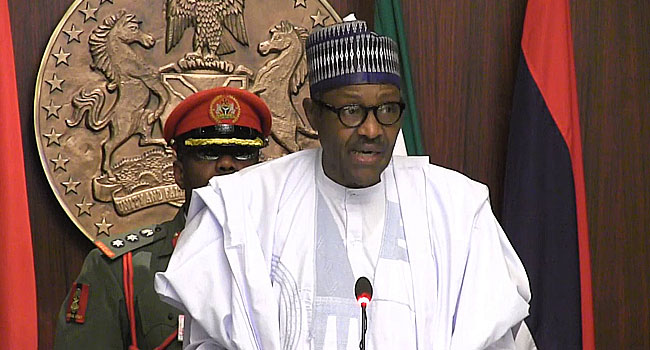

The National Assembly, Peoples Democratic Party, over 45 opposition political parties under the aegis of the Coalition of United Political Parties, and some prominent Senior Advocates of Nigeria on Friday kicked as President Muhammadu Buhari finally withheld his assent to the Electoral Act (Amendment) Bill 2018 passed by the National Assembly.
The President had earlier on Friday announced his decision to withhold his assent to the crucial electoral bill which the National Assembly transmitted to him on November 7.
The controversial bill has been returned to the National Assembly after the President refused to sign it the fourth time.
The President had earlier rejected it for the third time and returned it to the legislature on August 30.
Confirming Buhari’s latest decision in Abuja, his Senior Special Assistant, National Assembly Matters (Senate), Senator Ita Enang, said the President gave his reasons in a letter to the National Assembly.
Enang, a member of the All Progressives Congress from Akwa Ibom State, merely said, “President Muhammadu Buhari has taken decision on the Electoral Act (Amendment) Bill 2018 in accordance with his power under the 1999 Constitution and has communicated that decision to the Senate and the House of Representatives in accordance with the law.”
He added that Buhari acted within the law, which compels him to communicate his decision to the National Assembly.
Enang noted, “The President has taken a decision in accordance with the powers vested in him by the constitution. And by convention that decision contained in the communication can only be revealed by the person to whom that decision is addressed.
“But the electoral bill has left Mr President because he has taken a decision and has remitted it back.”
My refusal is in national interest -President
According to Saturday PUNCH findings, Buhari made the withdrawal known in a letter to the Senate and the House of Representatives, which was addressed to the President, Bukola Saraki and the Speaker, Yakubu Dogara, respectively.
The letter, a copy of which our correspondent obtained by Saturday PUNCH, was dated December 6, 2018.
It read, “Pursuant to Section 58(4) of the Constitution of the Federal Republic of Nigeria 1999 (as amended), I hereby convey to the Senate/House of Representatives, my decision on 6th December, 2018, to decline presidential assent to the Electoral (Amendment) Bill, 2018, recently passed by the National Assembly.
“I am declining assent to the bill principally because I am concerned that passing a new electoral bill this far into the electoral process for the 2019 general elections, which commenced under the 2015 Electoral Act, could create some uncertainty about the applicable legislation to govern the process. Any real or apparent change to the rules this close to the election may provide an opportunity for disruption and confusion in respect of which law governs the electoral process.
“This leads me to believe that it is in the best interest of the country and our democracy for the National Assembly to specifically state in the bill, that the Electoral Act will come into effect and be applicable to elections commencing after the 2019 general elections.”
Buhari also raise some drafting issues, calling for insertion and deletion of some words.
We will veto bill, Senate vows
However, uncertainty may be looming over the conduct of the forthcoming 2019 general elections as the Senate has vowed to veto the Electoral Act (Amendment) Bill 2018, following President’s decision to assent to the vital bill.
The Senate on Friday vowed to veto the bill saying the new electoral draft was very significant to the conduct and outcome of the 2019 elections.
The Vice-Chairman of the Senate Committee on Media and Public Affairs, Senator Ben Murray-Bruce, told Saturday PUNCH that the upper chamber of the National Assembly would lobby members of the ruling party, the All Progressives Congress, in the chamber to veto the bill.
Murray-Bruce, who had initially withheld the Senate’s reaction on the subject matter in order to get brief from the Senate President, Bukola Saraki, later spoke to Saturday PUNCH after getting in touch with Saraki.
Murray-Bruce, who said the amendments to the bill would guarantee free and fair general elections in 2019, said the Senate would do everything possible to veto the bill.
The Senate’s spokesman said, “First of all, we think it is a mistake not to sign the bill. We think Buhari should have signed it. We want the APC senators and all Nigerians to understand that, that bill was the right thing to do at this period of our national life.
“We will do everything possible to work with the progressive APC senators to get the right number of votes to override it. We will override it.”
He added, “We want credible elections and that was why we hoped the President would sign the (amended) Electoral Act. Now that he has refused to sign it, we will talk to the APC members in the Senate to look at Nigeria and not their party. They should look at Nigeria and not their party.
“There are aspects that INEC can implement on their own without the law.”
When asked later if he was reacting in his personal capacity as a senator or as the Senate’s spokesman, Murray-Bruce said, “It was the Senate reacting, I told you.”
Reacting, the House of Representatives said it would take action on the assent withdrawal after Dogara had read the letter to lawmakers in plenary.
The Chairman of the House Committee on Media and Public Affairs, Mr Abdulrazak Namdas, who spoke to one of our correspondents on the telephone, said, “The House can only take a decision after the letter had been read on the floor of the chamber.”
PDP, CUPP, SANS urge NASS to override Buhari
But the PDP Presidential Campaign Council on Friday urged the National Assembly to immediately override the President’s refusal to assent the bill.
The Director, Media and Publicity of the council, Kola Ologbondiyan, in a statement said overriding Buhari would save the nation’s democracy
He added that the legislative action had become imperative as Buhari’s decision was a calculated attempt to inject crisis into the electoral process.
According to him, Buhari’s refusal to sign the Act could ultimately scuttle the conduct of the 2019 general elections.
Ologbondiyan said, “President Buhari’s repeated refusal to sign amendments passed to check rigging in the election, raises issues of his sincerity of purpose and has the capacity to trigger political unrest and violence, which can, in turn, truncate our hard-earned democracy.”
According to him, Buhari is afraid of the amendments because they essentially checked the APC’s alleged rigging plans.
He also charged all political parties, other critical stakeholders and Nigerians in general, to rise in the interest of the nation and demand the entrenching of rules and processes that would guarantee the conduct of free, fair and credible elections.
Rejection invitation to anarchy –CUPP
Meanwhile, the CUPP said Buhari’s decision not to sign the bill was an invitation to electoral anarchy.
The coalition in a statement by its first national spokesperson, Imo Ugochinyere, said Buhari’s latest action portrayed him as a jittery President who was afraid of electoral defeat.
The statement read, “President Buhari has expectedly failed again to take advantage of the rare opportunity of the Electoral Amendment Bill to write his name in gold as the President that signed the laws that guaranteed electoral credibility in Nigeria.
“But yet again, as usual of him, he failed to rise to the occasion, being blinded by ambition and the love of the perks of office.”
Meanwhile, renowned Senior Advocates of Nigeria have advised the National Assembly to evoke its constitutional powers to override the President’s assent in respect of the electoral act.
The SANs include Olisa Agbakoba, Mike Ozekhome, Femi Falana and Ifedapo Adedipe.
Agbakoba, who is a former President of the Nigerian Bar Association and a member of the CUPP, said without the signing of the bill, some of the challenges experienced in the 2015 elections would repeat themselves.
He expressed the expectation that the Senate would override Buhari’s decision to pave the way for a smoother electoral experience in 2019.
Agbakoba said, “The 2018 Electoral Bill is clearly better than the 2010 (Electoral Act) as it removed all the constraints and challenges that marred the 2015 elections.
“So, retaining the weaknesses of the 2010 (Electoral Act) on whether the card reader and transmission of results electronically are allowed is going to make the 2019 elections a lot more difficult and challenging. So, I expect the Senate to override the presidential veto.”
Ozekhome also said the National Assembly had the power to override the President’s decision.
He said, “The National Assembly can go ahead with two-thirds majority to overturn the President’s decision. If after 30 days he (President) declines his assent, the National Assembly can meet and by two-thirds majority counteract his decline of assent and the bill becomes a law automatically.”
Adedipe, in his remarks, said, “Any democrat who believes in a free, fair, credible and transparent election will be concerned. This is because the earlier Electoral Act was found to have some inadequacies and that was what gave rise for the need for an amendment.
“But now that the President, in his wisdom, clearly aided by his supporters, has refused to assent to the amendment, my worry is that before this government came on board, the various individual respected Nigerians were rather very vociferous in their request for a transparent election. And so, if the National Assembly dominated by members of your own party is trying to amend the law, it is curious that the President will refuse to assent, then you’ll begin to suspect that perhaps there’s more than meets the eye in the refusal. It is probably because the ruling party is afraid of transparent elections.
Falana recalled that he had warned relevant stakeholders to expedite the process of passing the new bill as passing a law within a period shorter than six months to the election had been prohibited under Article 2 of Protocol on Democracy and Good Governance of ECOWAS.
Falana said, “Once the President withholds his assent, the choice the National Assembly has is to override his assent.
Buhari finally declines assent after speculations
Buhari’s decision confirmed speculation that became rife after the bill spent nearly one month on his desk, that he would reject it.
By the provision of the constitution, the President is to either sign or write the National Assembly within 30 days of a piece of legislation being transmitted to him, conveying his decision/reasons to withhold his assent.
Buhari had thrice rejected the bill, the third time being August 30, when he returned it to the National Assembly.
The lawmakers quickly incorporated the areas the President raised objections to and sent the bill back to him for his assent on November 7.
The new bill has provisions to improve on the country’s electoral process ahead of the 2019 general elections, including the use of the card reader as the sole means of accreditation of voters.
In rejecting the bill on August 30, Buhari raised objections to 11 sections, all of which the National Assembly addressed in the latest version pending on his table.
The Chairman, House Committee on Electoral and Political Party Matters, Mrs. Aisha Dukku, had while briefing members on the bill shortly before it was passed on October 24, stressed that all the areas Buhari queried had been amended appropriately by the Senate/House joint committees.
Dukku, a member of the APC from Gombe State, had stated, “All the issues raised by Mr President have been captured and addressed.
“Both the Senate and the House worked on these amendments and all the issues have been addressed.”
The controversial sections that were corrected included 9,18, 27, 30, 34, 36, 44, 87,112,151.
For example, in Clause 87(14), one of the areas raised by Buhari on deadline for primary election, Dukku said the legislature addressed it by inserting “the date of the primaries shall not be earlier than 150 days and not later than 120 days before the date of election to the elective offices.”
The original provision that Buhari rejected captured 120 days and 90 days.
Source: Punch


